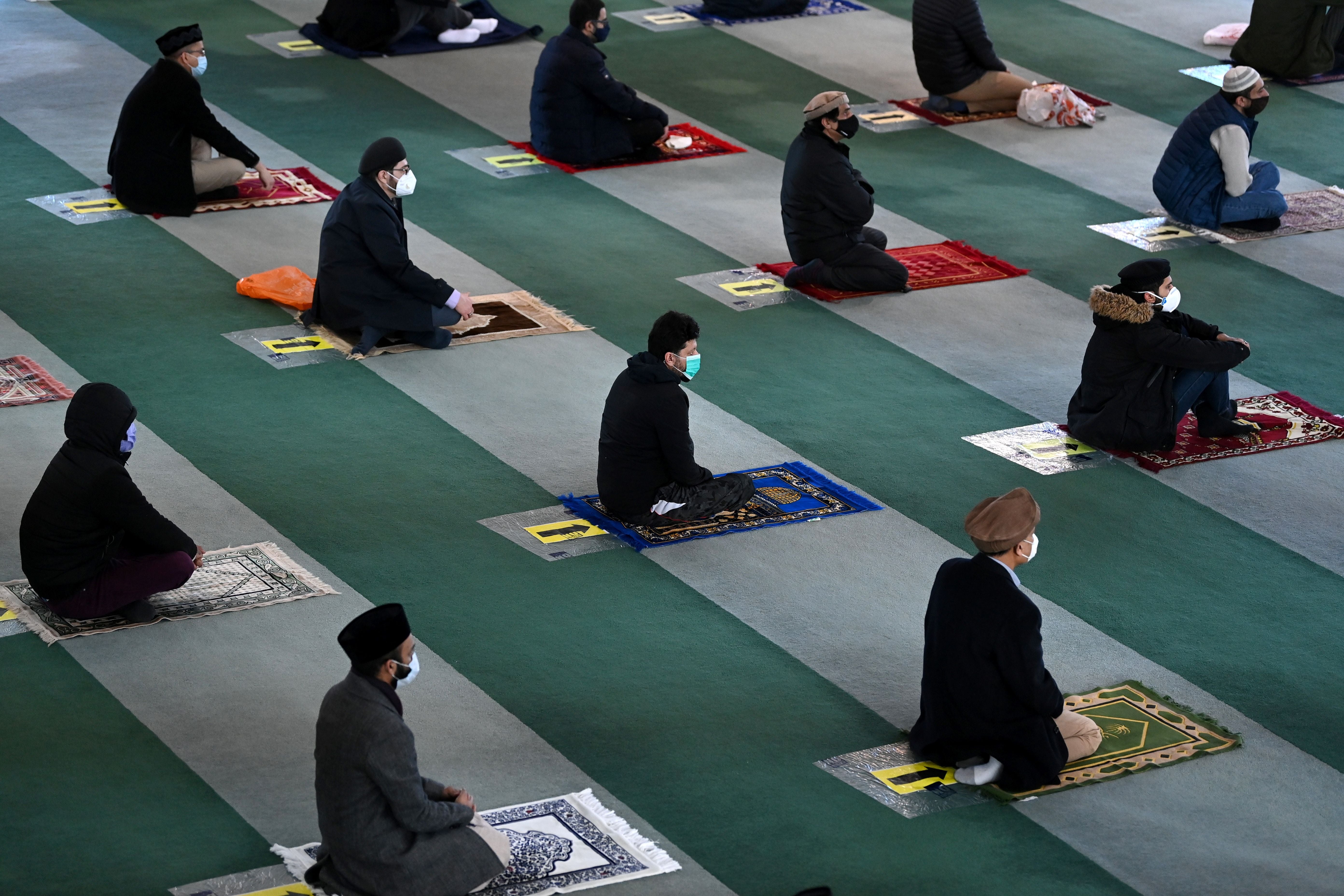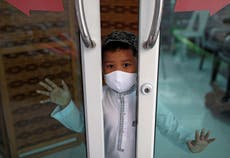Your support helps us to tell the story
From reproductive rights to climate change to Big Tech, The Independent is on the ground when the story is developing. Whether it's investigating the financials of Elon Musk's pro-Trump PAC or producing our latest documentary, 'The A Word', which shines a light on the American women fighting for reproductive rights, we know how important it is to parse out the facts from the messaging.
At such a critical moment in US history, we need reporters on the ground. Your donation allows us to keep sending journalists to speak to both sides of the story.
The Independent is trusted by Americans across the entire political spectrum. And unlike many other quality news outlets, we choose not to lock Americans out of our reporting and analysis with paywalls. We believe quality journalism should be available to everyone, paid for by those who can afford it.
Your support makes all the difference.Getting a coronavirus vaccine during Ramadan is safe for Muslims, a centre set up to investigate the impact of race and ethnicity on people’s health has said.
The NHS Race and Health Observatory said it had been made aware of inquiries about vaccine uptake during the 30-day holy period.
This year, Ramadan starts on 12 April and lasts until 12 May.
Concerns had been raised about whether the act of getting the vaccine would break the fast, as well as potential side effects of feeling unwell after being vaccinated, and reservations about taking daily pain relief medication.
Dr Habib Naqvi, director observatory, said: “We need to tackle and address early concerns raised by Muslim communities who may be offered their vaccinations whilst fasting and working in frontline and supporting roles.“
There is no reason why a first or second dose vaccine cannot be administered during Ramadan. The content is halal, and receiving it will not invalidate the Ramadan fast, as per the opinion of Islamic scholars.
“The Covid-19 pandemic has required sacrifices from all NHS staff. Muslims have additional challenges during Ramadan by having to function without sustenance during working hours.“
We do not want to put these communities at any unnecessary risk by not accepting their first or second dose of the vaccination if offered.”
The Observatory said Ramadan is one of a number of forthcoming faith periods and festivals, including Passover, Easter, Vaisakhi and Eid – which marks the end of Ramadan – which is likely to be celebrated amid some Covid-19 restrictions and adapted practices.
Dr Hina Shahid, chair of the Muslim Doctors Association, said: “This has been a unique time globally, with festivals of Ramadan and Eid occurring during the peak of Covid-19.
“Muslims and other faith communities have met these challenges head on; it was inspiring to see the community using technology for prayer and sharing images of iftar with family and friends at the start of the pandemic.
“Obviously, during the pandemic these festivities and norms have been very different. “Vaccination is one of our biggest tools to make sure we can go back to normal soon, including celebrating festivals with our loved ones when it is safe to do so.“
“I encourage everyone to get vaccinated when they get called, including during Ramadan, and to discuss any concerns with their GP.”
Dr Naqvi said the virus had “made many of our black and minority ethnic communities even more vulnerable”.
He added: “If coronavirus restrictions remain in place this Ramadan, the message is, whether working or shielding, take the vaccine and help protect yourself and your community.”




Join our commenting forum
Join thought-provoking conversations, follow other Independent readers and see their replies
Comments